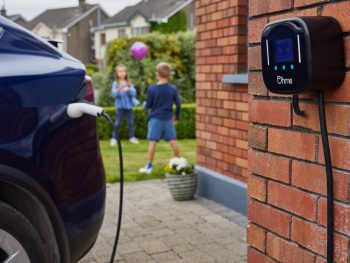Electric car charger law comes into force for new homes and workplaces
New legislation that requires the majority of new residential developments, workplaces and supermarkets to have electric vehicle charging points installed has come into force from today.

The new legislation is part of the Government’s wider plan to help cut carbon emissions by encouraging more drivers towards electric cars in the run-up to the 2030 ICE ban
Announced late last year, the new legislation is part of the Government’s wider plan to help cut carbon emissions by encouraging more drivers towards electric cars in the run-up to the 2030 ICE ban.
Around an extra 145,000 extra charge points will be installed across England each year thanks to these regulations, which also include residential buildings undergoing major renovation that will have more than 10 parking spaces after the renovation is complete. These must have at least one charge point for each dwelling.
The new legislation has been welcomed by the National House Building Council (NHBC), which works to raise the construction standards of new homes in the UK.
Richard Smith, head of standards, innovation and research at the organisation, said: “The journey to net zero carbon will have significant implications for housebuilders, planners and architects. Ensuring the right electric vehicle infrastructure, including easy access to charge points, is key. Our own NHBC Foundation research has shown that the UK needs more than four million electric vehicle charge points by 2030, from a figure of around only 180,000 just two years ago.”
EV smart charger provider Ohme has also greeted the new law – it says it’s seen a dramatic increase in demand from housing developers and building companies.
CEO David Watson commented: “Over the past six months, even before this new legislation arrived, our enquiry levels from developers have more than doubled and we can see that building companies have embraced these new regulations. Developers are already seeking out smarter chargers such as ours as an active selling point for buyers.”
Daloop, a specialist in sustainable mobility management, said such the new legislation was necessary as reliance on a roadside, on-demand fuel supply model will not be cost-efficient, nor will it be entirely reliable for when EV users become a majority.
“Despite electricity prices continuing to rise, home charging will remain far cheaper than driving a combustion engine vehicle, and the benefits of a home charger in terms of convenience, accessibility and once installed, affordability, is clear when compared to other charge point facilities,” stated founder and CTO André Dias.
“Government efforts to expand the electric charging network must happen at the infrastructural level like this in order to be effective and to ensure that the target of installing 300,000 new EV charging points by 2030 is reached. Adapting infrastructure to bring charge points to the spaces that vehicle users already frequent, such as retail destinations and homes, makes the change to electric vehicles far easier for consumers, both practically and psychologically. This announcement goes in hand with government commitments revealed this week to now focus predominantly on delivering and developing the charging infrastructure to support the EV transition.”












